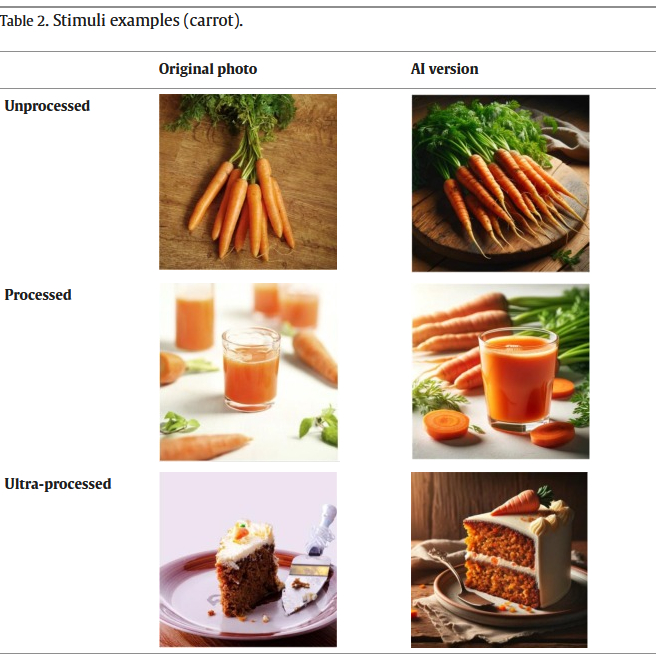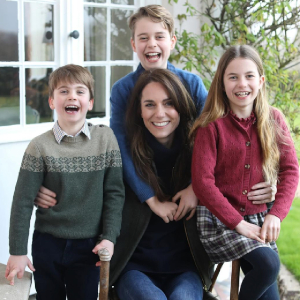I’ve been monitoring – closely – recent online posts about AI-generated food images. And I’m having a lot of trouble accepting the rationalizations of technicians and resto types. Does AI generation of food pics open the door even wider to fraud?

Well… Here we are, in March 2024. And one of the biggest online ‘stories’ of the past week has been the alleged ‘Photoshopping’ of a family photo by the Princess of Wales (see image, top of page). Not quite a scandal, but definitely an embarrassment – because she got caught.
And that’s a key issue in today’s post. I absolutely despise the idea of AI-generated food photos, on principle. And I hate Photoshopped or ‘overstated’ real photos almost as much. Both technically modified types of images are cheats, in my book. ‘Made to deceive’.
The pic that never was…
We’re told computer-enhanced and -adjusted photos are already commonplace. And the advertising industry is an enthusiastic early adopter of the technology. More alarming than that, images fully constructed by AI are coming into play.
ScienceDirect.com reports that a new learned study has emerged testing the ‘visual appeal’ of real vs. AI-generated images. The study was conducted in two parts. One was designed to measure the subjects’ ability to tell real from AI images. The other to measure how strongly AI would influence the the subjects’ impressions of how appetizing the foods depicted were.
What they did
The images displayed to subjects were identical in both parts of the study. Researchers created 30 sets of three images each. One was a simple picture of a food. Another was a 9minimally processed pic of the same food. And the third was an ultraprocessed0 version. For example, a bunch of carrots, Carrot Juice and Carrot Cake (see chart, above)
“For each authentic photo, an AI rendition was created using OpenAI’s DALL-E 3 [software] integrated into ChatGPT . The original content was uploaded with the prompt: ‘Replicate this photo’ (see Supplementary Material). The model then generated a description for each photo, which was used by DALL-E to recreate the image from scratch, based on its training data (thus, the original image was not modified but entirely reconstructed).”
What they found
In the first part of the study: “The proportion of food items accurately identified as AI-generated was very high, with a range extending from 62 percent for processed carrots (i.e., carrot juice) to 91 percent for ultra-processed peanuts (i.e., chocolate peanut treats).”
In the second part of the study: “AI-generated images appeared more appetizing than real photos when the participants were unaware of their origin. However, when correctly labeled, there was no significant difference between real and AI-generated photos in terms of perceived palatability.”
In addition, “Moreover, in the condition where the photos were mislabeled, participants rated those they believed to be real as more appetizing, even though they were actually AI-generated.” And vice-versa.
The takeaway
The study’s authors spotlighted several key points:
“The present study carries implications for both marketers and policymakers. Our findings suggest that AI-generated food images are generally well-received by consumers, often even better than real photos when individuals are unaware of the photo’s nature. While this may present an opportunity for marketers and the industry (e.g., to reduce the costs associated with food photo shoots), there is a potential risk of exacerbating ‘visual hunger’, which could influence unhealthy eating behaviors or create unrealistic expectations about food among consumers.”
My take
I suspected that the AI-generated images would produce the kind of results the researchers reported from their experiments. And I fully support the immediate implementation of regulations mandating full disclosure of the amount and type of ‘modification’ that any advertising image has undergone. Small-print disclaimers won’t do the trick. A full, closed captioning-style label.
It’s bad enough that Fast Food purveyors are being taken to court almost weekly, over false and misleading food images in their media ads and on store menuboards. When AI-generated food photos become as commonplace as Photoshopped ones are now, the potential for ad and menu fraud will potentially be multiplied many fold.
My questions to you:
Have you been deceived or misled by photoshopped or ‘overstated’ food images?
Do you love or hate the idea of AI-generated food images?
Do you fear that you’ll be deceived or misled by AI-generated food images?
~ Maggie J.

